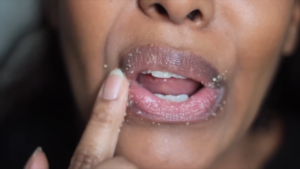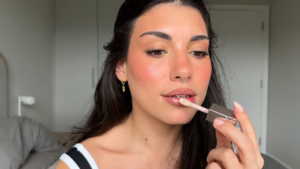Skincare is a subject filled with misconceptions, false information and half-truths. It’s difficult to separate fact from fiction given the multitude of products, routines, and advice that is out there. In this article we will debunk some of the most popular myths about skin care and discuss what works for maintaining healthy skin.
Myth 1: Expensive Products Are Always Better
The Truth: Ingredients Matter More Than Price
One of the most common myths is that more expensive skincare products are always better. While luxury brands often boast about their exclusive formulas, the truth is that effective skincare depends on ingredients not price tags. Dermatologists emphasize active ingredients such as retinoids, hyaluronic acid and niacinamide as key to any good skin care regimen. Many affordable brands contain these same powerful ingredients and can provide similar results without breaking the bank.
Myth 2: Natural Ingredients Are Always SaferThe Truth: Natural Doesn’t Always Mean Better
Many people think natural ingredients are gentler and safer for your skin than unnatural ones; however, this isn’t always true. Take essential oils: though they are “natural”, they can cause allergic reactions or irritate the skin. On the other hand, many synthetic ingredients undergo rigorous testing to ensure safety and efficacy. It’s important to consider an ingredient’s proven benefits and potential drawbacks rather than its source.
Myth 3: You Only Need Sunscreen on Sunny Days
The Truth: Sunscreen Is Essential Every Day
A big myth is thinking you only need sunscreen when it’s sunny outside or during summertime. Ultraviolet (UV) rays which lead to aging of the skin cells as well as cancerous ones go through clouds and windows hence sunscreen needs to be applied daily. Your dermatologist advises using broad-spectrum SPF 30+ every day irrespective of whether it is cloudy or hot in order to shield your body from harmful ultraviolet radiation.
Myth 4: Oily Skin Doesn’t Need Moisturizer
The Truth: Hydration Is Key for All Skin Types
A lot of people with oily skin assume moisturizing will make their condition worse by adding oiliness to it further. But actually, neglecting moisturizer may result in dehydration which triggers increased oil production by your body. When choosing one, opt for lighter, non-comedogenic options that deliver hydration without clogging pores. Blemish-prone skin types might want to consider hyaluronic acid, glycerin and more.
Myth 5: Anti-Aging Products Are for Older People
The Truth: Prevention Starts Early
While anti-aging products are usually marketed for older adults, prevention should begin much earlier. By using products with retinoids, antioxidants and sunscreen in your 20s and 30s, you can help fight off the early signs of aging. These ingredients promote collagen production, protect against environmental damage, and maintain skin elasticity so that it looks younger for longer.
Myth 6: Exfoliating Daily Is Necessary for Clear Skin
The Truth: Over-Exfoliation Can Harm Your Skin
Exfoliation is important for getting rid of dead skin cells and encouraging cell turnover; however, more is not always better. Over-exfoliating can dry out the skin leading to irritation or even breakouts. A lot of dermatologists suggest a twice-weekly exfoliation with mild exfoliants like AHAs (alpha-hydroxy acids)or BHAs (beta-hydroxy acids). Customize your exfoliation routine based on your type of skin to avoid causing injury to it.
Myth 7: You Don’t Need to Worry About Your Neck and Hands
The Truth: Extend Your Skincare Beyond Your Face
Most people concentrate only on their facial skincare routine, leaving out their necks and hands. In the same way, these areas are prone to age signs that include wrinkles as well as age spots. Consequently, you should expand your skincare routine to incorporate your neck and hands by using the same products that you use for your face such as moisturizers, sunscreens, and serums.
Myth 8: Popping Pimples Helps Them Heal Faster
The Truth: Popping Can Cause More Damage
Though it may be tempting to pop pimples, thinking it will fasten their healing but this is not true. This is so because popping pimples can spread bacteria deeper into the skin, causing more inflammation, infection or even scarring. Instead of this apply spot treatments that contain benzoyl peroxide or salicylic acid over acne and allow blemishes to heal naturally.
Myth 9: Drinking Water Is Enough to Keep Your Skin Hydrated
The Truth: Topical Hydration Is Also Necessary
Although drinking water is crucial for being hydrated on the inside, keeping skin hydrated takes more than just hydration from within. Topical hydration of Stratum Corneum which forms the outermost protective barrier of the skin is necessary for its healthiness. For that reason in order to keep moisture in your skin make sure you insert some hydrating serums and moisturizers in your beauty regime such us those containing hyaluronic acid , ceramides and glycerin which will boost hydration levels.
Myth 10: You Don’t Need a Skincare Routine if You Don’t Have Skin Problems
The Truth: Prevention and Maintenance Are Crucial
Even if there are no issues with your skin at present, an unchanging skincare routine comes in handy when trying to prevent them. Regular cleansing, moisturizing and sun protection help maintain healthy-looking skin hence avoiding future problems. Early establishment of a regime can stop issues like premature aging, acne and hyperpigmentation.
Conclusion
Navigating the ever-growing world of skincare can be overwhelming but debunking these common myths will help you make informed decisions about your routine. Focus on proven ingredients, prioritize sun protection, and maintain consistent care to achieve healthy glowing skin. Remember that skincare is a long-term investment in your overall well-being so give it the attention it deserves.








